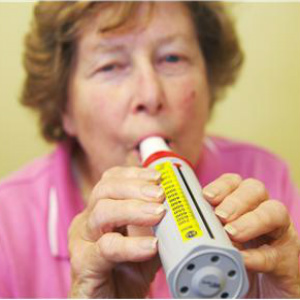NICE takes unprecedented step of delaying asthma guideline to ‘explore its impact’

NICE chiefs have delayed new asthma guidelines to look at the impact of the recommendations ‘in routine practice’, following criticism from the GP profession.
They said the final guidelines have now been delayed ‘until later in the year’ because of ‘challenges’ to the introduction of the guidance in practice, in a statement on the NICE website.
GP leaders said it was the ‘first time’ they could remember guidelines being delayed to investigate to impact on providers.
The guidelines were originally due to be published in July but were roundly rejected by the BMA and also criticised heavily by the RCGP, who warned recommendations to introduce a battery of new tests for diagnosis would ramp up costs for GP practices and lead to big increases in referrals to secondary care.
NICE would not comment on whether it would take on board the GPs’ concerns about the draft recommendations, but said that the guidelines group had ‘listened to comments’ from the consultation and now needed to ‘learn more’ about the impact the proposals in practice.
The draft guidelines, released in January, bypass the option to carry out a trial of therapy as means to diagnose asthma – currently advised by the recently updated gold-standard SIGN/BTS guidelines on diagnosis – and require GPs to get extra tests to confirm a diagnosis.
Both the BMA and RCGP had questioned the introduction of new diagnostic tests to confirm a diagnosis of asthma, which they said were too complex and had major cost implications – because of the costs of the new testing equipment and training as well as the need for more appointments.
Related stories
The BMA is wrong about NICE’s asthma advice
BMA wholly rejects NICE recommendations on asthma in scathing response
NICE: GPs should use FeNO and ‘twitchiness’ tests to confirm asthma diagnosis
They also questioned the evidence base for using FeNO tests to diagnosis asthma as NICE plans to recommend.
The criticisms that were rejected by Professor Mike Thomas, professor of primary care research at the University of Southampton and a member of the guidelines development panel, who insisted that FeNO testing should be widely used based on existing guidance if it was made available.
However, NICE has now decided to delay the release of the new guideline.
The statement on the NICE website reads: ‘The NICE guideline on asthma diagnosis and monitoring will be delayed until later this year. This is to allow additional time to work with commissioners and healthcare professionals in asthma care to make sure the recommendations can be introduced effectively and efficiently.’
A NICE spokesperson said: ‘Our draft guideline proposes some radical and innovative changes with considerable potential benefits for patients and the NHS as a whole. We’re confident about the direction the NHS should go to improve the diagnosis of asthma but we need to learn more about the impact of our recommendations in routine practice.
‘We have listened to the comments we received during the consultation period and now plan to explore the impact of our recommendations by engaging with a number of NHS communities in England. We will use the results to inform the final version of the guideline, which will be published in due course.’
Dr Andrew Green, chair of the GPC’s clinical and prescribing subcommittee, said it was ‘the the first time I can remember that NICE have delayed publication of a guideline in order to investigate the impact on providers’.
Dr Green added: ‘Consideration of the wider effects of their guidance is something that we have been pushing NICE for as we believe it should be an integral part of all their deliberations, so I am pleased that they are reflecting seriously on the consultation responses they received.’
Dr Maureen Baker, chair of the RCGP, said: ‘Delaying publication of the guidance to ensure that rollout is both properly resourced and can be implemented effectively, in the best interests of patients, was the sensible thing for NICE to do and we hope that when they are eventually published, our concerns have been properly taken into account.’
Visit Pulse Reference for details on 140 symptoms, including easily searchable symptoms and categories, offering you a free platform to check symptoms and receive potential diagnoses during consultations.









